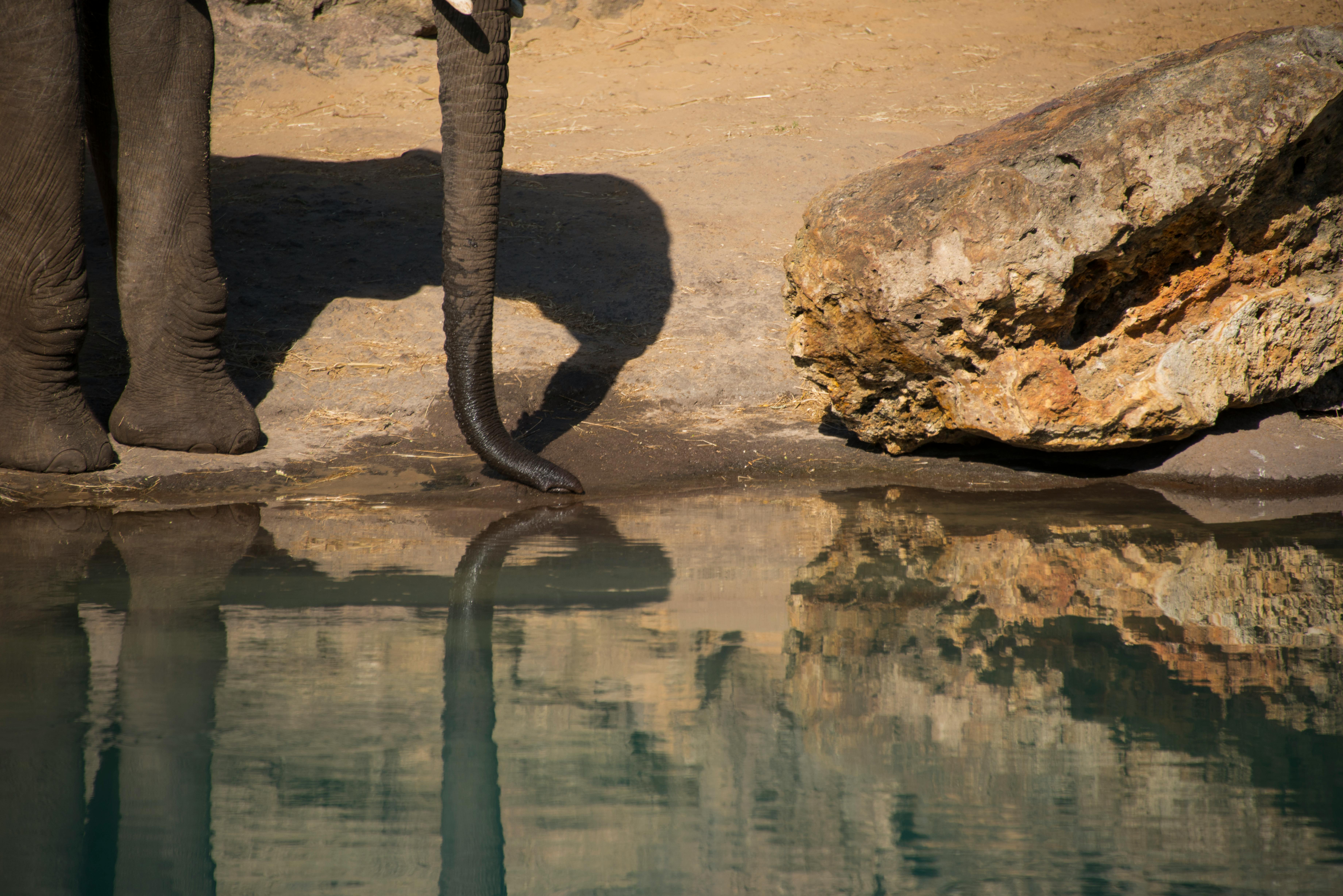Drinking water is an essential part of a healthy lifestyle, but not all water is created equal. Distilled water is a type of purified water that has been heated to its boiling point, cooled down and condensed to create an extremely pure form of H2O. While distilled water is often used for drinking, it should not be confused with regular drinking water. In this article, we will explore the differences between regular drinking water and distilled water to help you make the best choice for your health.Distilled water is water that has been boiled to produce steam, which is then condensed back into liquid form. This process removes any impurities and minerals, leaving behind pure H2O. Distilled water is usually used in water-cooling systems in computers, as well as for drinking and cooking purposes.
What Is Drinking Water?
Drinking water, also known as potable water, is water that is safe to drink or to use for food preparation. It is commonly sourced from a variety of sources including springs, lakes, rivers and other surface waters, and deep underground aquifers. The World Health Organization defines drinking water as “water that is safe to drink or use for food preparation without risk of health problems.” In other words, it must be free of harmful contaminants such as bacteria and parasites that can cause disease.
In order for drinking water to be considered safe, it must meet certain standards set by national and international organizations such as the United States Environmental Protection Agency (EPA) and the World Health Organization (WHO). These standards ensure that the drinking water does not contain any harmful contaminants that can have adverse effects on human health. The EPA sets maximum contaminant levels (MCLs) for a variety of pollutants found in drinking water in order to protect public health. WHO has also established guidelines for what constitutes safe drinking water based on a number of factors such as the source of the water and its treatment processes.
<
Is Drinking Water The Same As Distilled?
No, drinking water is not the same as distilled water. Distilled water is water that has been boiled and condensed back to liquid form. This process removes any impurities or minerals from the water. Drinking water, on the other hand, is usually treated with chemicals such as chlorine or fluoride to make it safe for human consumption. It may also contain added minerals or electrolytes for taste and health benefits.
Distilled water is often used in medical settings where it is important to have a sterile environment free of bacteria or other contaminants. It is also used in many industrial processes due to its purity and lack of dissolved solids.
Drinking distilled water can be beneficial for people who have kidney disease or other medical conditions that require them to avoid certain minerals that are found in tap and bottled waters. However, drinking distilled water on a regular basis can lead to mineral deficiencies over time since it lacks many important minerals such as calcium, magnesium, potassium, and sodium that are beneficial for health.
For most people, drinking tap or bottled drinking water is the best option since it contains many essential minerals and nutrients needed
Advantages of Drinking Water
Drinking water is essential for health, and its many benefits are well-known. Water helps to flush toxins from the body, aids in digestion and nutrient absorption, prevents dehydration, and helps keep the body balanced. It also helps maintain a healthy weight, increases energy levels, and boosts mental clarity. Additionally, drinking water can help regulate the body’s temperature and reduce stress levels. All of these benefits make it important to stay hydrated throughout the day.
Water is also an essential part of any diet plan because it helps to reduce cravings for unhealthy snacks. When you drink enough water, you feel fuller for longer periods of time which can help prevent overeating. Additionally, drinking water can help keep your skin looking young and healthy by providing moisture to the skin cells. It can also help prevent chronic diseases such as diabetes and heart disease by helping to lower blood pressure and cholesterol levels.
Overall, drinking plenty of water is an easy way to ensure your body is functioning properly and staying healthy. By drinking at least eight glasses a day you can enjoy all the benefits that come with staying hydrated. So make
Advantages of Distilled Water
Distilled water has many advantages over other types of water. It is free from impurities, bacteria, and viruses, so it is safer to drink than untreated or unfiltered water. Additionally, distilled water has a neutral pH level and is free of any minerals or ions which can affect the taste or odor of it. Furthermore, distilled water is often preferred for medical treatments such as dialysis because it does not contain any contaminants that could interfere with the process. Lastly, distilled water is also great for everyday use in appliances like coffee makers and steam irons because it does not leave behind any mineral deposits which can build up over time.
In summary, distilled water has many advantages which make it an ideal choice for drinking, medical treatments, and appliances. It is free from impurities and contaminants that can affect taste or odor; it has a neutral pH level; and it does not contain any minerals or ions that can interfere with processes or cause buildup in appliances.

Advantages of Drinking Water
Drinking water has numerous health benefits that can improve your overall wellbeing. It helps to flush out toxins from the body, keeps you hydrated, and helps to regulate your body temperature. It can also boost your energy levels, improve your mental alertness, and aid in digestion. Furthermore, drinking plenty of water can help to prevent a range of illnesses and diseases such as kidney stones, constipation, diabetes, and heart disease. Additionally, it is essential for healthy skin and hair growth.
Disadvantages of Drinking Water
Although drinking water is generally beneficial for health, there are some potential disadvantages associated with it. If you drink too much water too quickly it can lead to an imbalance of electrolytes in the body which can cause nausea and vomiting. Additionally drinking contaminated water can put you at risk of developing a range of illnesses including Hepatitis A and E-coli infection. Lastly, if you experience any abdominal pain or discomfort after drinking water it is best to seek medical advice as this could be a sign of a serious underlying condition such as appendicitis or
Advantages of Distilled Water
Distilled water has several advantages. It is free from dissolved minerals and other contaminants, making it a better option than tap water for many uses. Distilling the water removes bacteria, viruses, heavy metals, and other impurities that can be harmful to human health. It also has an extended shelf-life since it does not contain any organic matter that can spoil or cause contamination. Another advantage of distilled water is that it has a neutral pH level which can be beneficial for those with sensitive skin or allergies as it does not irritate skin like tap water can. Furthermore, distilled water is often used in medical treatments and laboratory experiments due to its purity and neutrality.
Disadvantages of Distilled Water
Despite its many advantages, there are some drawbacks to using distilled water. Firstly, the distillation process requires energy and resources which can be expensive for home use. Additionally, distillation removes minerals from the water which can have a negative impact on health if consumed regularly over long periods of time as most of the minerals essential for our nutrition are removed during the process. Finally, distilled
How To Tell If Your Drinking Water is Safe?
Knowing if your drinking water is safe is essential for your health and wellbeing. Unfortunately, not all water sources are clean and safe to drink from. Therefore, it is important to be aware of the risks associated with drinking contaminated water and the steps you can take to ensure the safety of your drinking water.
The first step in determining if your drinking water is safe is to find out what type of source it comes from. Is it coming from a public or private source such as a river, lake, or well? Understanding the source will help you understand what contaminants may be present. For example, if you are getting your drinking water from a private well, there may be bacteria or other pollutants that have entered the well from surface runoff or other sources.
It’s also important to check for any potential contaminants in the area where you live. Are there any industrial facilities such as factories or power plants nearby? Are there any agricultural activities occurring in the vicinity? These can all contribute to potential contamination of drinking water sources.
If you are still unsure whether your drinking water is safe, consider having it tested

Conclusion
In conclusion, drinking water is not the same as distilled water. Distilled water is completely stripped of its minerals and other substances, whereas drinking water still contains some of those natural elements. While distilled water can be used for certain purposes where completely pure H2O is necessary, it should not be used as a regular source of hydration due to the mineral deficiency it can cause. Drinking water is the recommended option for hydration and proper nutrition since it provides the body with essential minerals and electrolytes.
Thus, when considering which type of water to drink on a daily basis, it is important to understand the differences between drinking and distilled waters to ensure that you are meeting your body’s nutritional needs.

